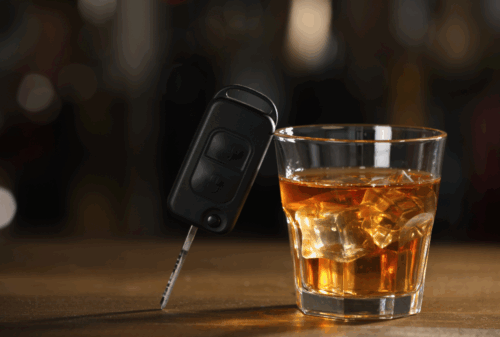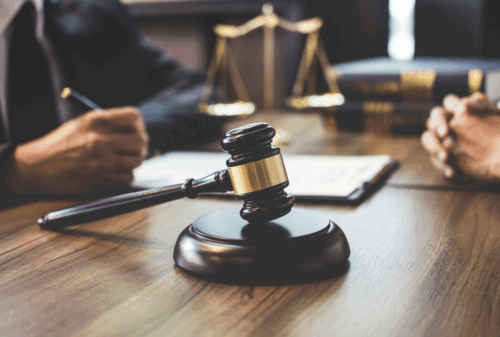Being arrested for driving under the influence (DUI) in Florida is a serious matter that can derail your future, tarnish your reputation, and cost you thousands in fines, legal fees, and lost opportunities. The legal process is complex, the penalties are severe, and the impact on your life can be long-lasting.
However, the good news is that with the right legal support, it is possible to minimize the consequences or even have the charges dropped. This comprehensive guide is designed to help you understand Florida DUI law, what to expect after an arrest, and how the Gainesville DUI lawyers at Turner O’Connor Kozlowski, PL can defend your rights.
If you or someone you know is facing a DUI charge, don’t face it alone. Know the law, understand your options, and take action. Call us today at to schedule a confidential consultation with one of our Gainesville criminal defense lawyers.
Understanding DUI
In Florida, a DUI occurs when a person operates a motor vehicle while impaired by alcohol or drugs to the extent that their normal faculties are compromised. Legally, impairment is primarily determined through blood alcohol content (BAC).
For most drivers aged 21 or older, a BAC of 0.08% or higher constitutes a DUI. For commercial drivers, the threshold is 0.04%, and for drivers under 21, any reading of 0.02% or higher may trigger administrative penalties under Florida’s zero-tolerance policy.
Impairment can also be based on the influence of drugs, whether illegal substances like cocaine and heroin or legal prescription drugs such as benzodiazepines. Unlike alcohol, drug impairment is not measured by a BAC but may be evaluated through blood or urine tests and field sobriety tests.
Importantly, you can be charged with DUI even if your BAC is below the legal limit, provided the officer believes your faculties are impaired.
DUI Law in Florida
Driving under the influence in Florida is a serious offense. Legally defined under Florida Statute § 316.193 as operating or being in actual control of a vehicle while impaired by alcohol, drugs, or with a blood alcohol concentration (BAC) of 0.08% or higher (or lower for underage and commercial drivers).
Florida laws and the penalties for charges of DUI:
First Offense
A first DUI offense in Florida carries significant penalties. If convicted, you face up to 6 months in jail, fines between $500 and $1,000, and a driver’s license suspension of 6 to 12 months. You may also be required to complete 50 hours of community service and attend DUI school. If your BAC was 0.15% or higher, or a minor was in the vehicle, the jail time can increase to 9 months, and fines may reach $2,000.
Vehicle impoundment for 10 days is also a standard consequence, and even for first-time offenders, an ignition interlock device (IID) may be ordered at the court’s discretion. These penalties highlight the need for competent legal representation to negotiate or challenge charges where possible.
Subsequent Offenses
Penalties escalate sharply with repeat offenses. A second DUI within five years can lead to at least 10 days in jail (up to 9 months), fines ranging from $1,000 to $2,000, and a 5-year license revocation. Vehicle impoundment increases to 30 days, and the installation of an IID becomes mandatory for at least one year.
A third DUI within 10 years is classified as a third-degree felony in Florida. Conviction can result in fines up to $5,000, 5 years in prison, and a 10-year license revocation. Each conviction adds complications to your legal situation and makes a strong defense even more crucial.
Aggravated DUI
Aggravated DUI refers to DUI offenses involving aggravating factors that increase the severity of the penalties. These include having a BAC of 0.15% or higher, causing bodily injury or death, or driving under the influence with a minor in the vehicle.
An aggravated DUI may be prosecuted as a felony rather than a misdemeanor, leading to longer prison terms, higher fines, and additional penalties like mandatory interlock devices, alcohol monitoring, and more stringent probation requirements.
DUI with Property Damage or Personal Injury
If a DUI incident results in property damage or personal injury, the stakes become much higher. In Florida, a DUI causing property damage is considered a first-degree misdemeanor, punishable by up to one year in jail and a $1,000 fine.
If personal injury is involved, it escalates to a third-degree felony, having possible penalties of a maximum of five years in prison and monetary penalties, reaching $5,000. The injured parties may also pursue civil lawsuits, adding financial liability in the form of restitution or damages. Having a Gainesville DUI lawyer is crucial in limiting both criminal and civil consequences.
DUI Involving Drugs (DUID)
Driving under the influence of drugs is treated the same as alcohol under Florida law. DUID charges can result from the use of illegal drugs like heroin or methamphetamine, or even legally prescribed medications such as opioids or sleep aids. If these substances impair your ability to drive safely, you can be arrested for DUI.
Unlike alcohol, drug impairment is more difficult to measure. Police may use blood or urine tests, but these often detect inactive metabolites, not active impairment. The absence of a clear legal limit makes DUID cases more subjective and often more defensible, especially with expert testimony challenging the validity of the test results or the interpretation of impairment.
Administrative vs. Criminal DUI Penalties in Florida
Florida separates DUI consequences into two tracks: administrative penalties handled by the Florida Department of Highway Safety and Motor Vehicles (DHSMV), and criminal penalties through the courts. If you fail a breath test or refuse to take one, your driver’s license may be suspended immediately. This is an administrative action separate from the criminal case.
You have only 10 days from your arrest to request a formal review hearing to challenge the administrative suspension. If you don’t request a hearing in time, your license remains suspended, regardless of the outcome of your criminal case. First-time offenders may apply for a hardship license to maintain limited driving privileges, but they must enroll in DUI school and meet other requirements.
Hardship Licenses and Reinstating Driving Privileges
A hardship license allows individuals to drive for essential purposes such as work, school, or medical appointments while their regular license is suspended. To apply in Florida, you must first enroll in or complete DUI school. The DHSMV requires proof of enrollment and may schedule a hearing to determine eligibility.
If approved, you will receive restricted driving privileges under strict terms. Failing to follow these restrictions can lead to revocation. A hardship license offers a pathway to maintain some independence and fulfill obligations while complying with DUI penalties. Hiring a skilled Gainesville DUI lawyer can help you to navigate ways to get your license back.
DUI Checkpoints in Florida
DUI checkpoints, or sobriety checkpoints, are legal in Florida but must follow strict constitutional guidelines. Law enforcement agencies must publicly announce checkpoint locations and times in advance. At the checkpoint, officers briefly stop drivers to check for signs of impairment. If any are observed, the driver may be directed to a secondary screening.
Drivers are required to provide a license, registration, and proof of insurance, but are not obligated to answer incriminating questions. You may decline field sobriety tests, but doing so may still lead to arrest.
Checkpoints are often challenged in court based on the failure to meet legal requirements, making this a potential avenue for defense. An experienced and knowledgeable Gainesville DUI lawyer can examine if the proper procedures were followed.
Underage DUI and Zero Tolerance Policy
The state of Florida has a zero-tolerance policy for drivers under 21. If an underage driver is found with a BAC of merely 0.02% or more, their license can be suspended for six months. A second offense can lead to a one-year suspension. These administrative actions are separate from potential criminal DUI charges, which can still be filed if the driver shows signs of impairment regardless of BAC.
Underage DUI convictions carry long-term consequences, including criminal records, loss of scholarships, increased insurance rates, and damage to college or job prospects. In such cases, legal intervention is crucial to protect a young person’s future.
Ignition Interlock Device (IID) Requirements
An ignition interlock device is a breathalyzer connected to your vehicle’s ignition. You must blow into it and register a BAC below a set limit before the vehicle will start. Florida mandates IID installation for certain DUI convictions:
- First offense with BAC ≥ 0.15% or with a minor in the car
- Second or subsequent offenses
The cost of installation, monthly calibration, and maintenance is borne by the offender. Failure to comply with IID requirements can lead to further license suspension and criminal charges. While inconvenient and costly, IID installation is often part of regaining driving privileges after a DUI.
DUI and Commercial Driver’s Licenses (CDL)
Commercial drivers are held to higher standards due to the nature of their work. In Florida, a CDL holder can be charged with DUI for a BAC of 0.04% or higher while operating a commercial vehicle. If convicted, even for a first offense, the driver faces a one-year disqualification of their CDL. A second offense results in a lifetime disqualification, effectively ending a commercial driving career.
CDL holders are also subject to the same administrative and criminal penalties as non-commercial drivers. Additionally, employers may terminate or refuse to hire drivers with DUI convictions, making legal defense vital for anyone in the transportation or logistics industry.
DUI and Ride-Sharing Drivers (e.g., Uber and Lyft)
In Florida, individuals who drive for ride-sharing services such as Uber or Lyft are held to higher standards than typical drivers. A DUI arrest—even if it does not result in a conviction—can lead to immediate suspension or deactivation from the platform. These companies routinely conduct background checks, and any DUI-related incidents often violate their terms of service.
A conviction can lead to a permanent ban from working for such services. For ride-share drivers, a DUI not only affects driving privileges but also their source of income. If you are a ride-share driver facing DUI charges, it is essential to work with a Gainesville DUI lawyer who understands how to mitigate the professional damage and explore all available legal defenses to protect your livelihood.
DUI and Out-of-State Drivers
Florida sees millions of out-of-state visitors each year, and DUI laws apply to them equally. If you are licensed in another state and receive a DUI in Florida, your home state will likely be notified through the Driver License Compact.
Many states honor each other’s suspensions and penalties. You may face consequences both in Florida and back home. Hiring a Gainesville DUI lawyer is essential to defend the case where the offense occurred.
What Should I Do If I’m Stopped for a Suspected DUI?
If you are pulled over and suspected of DUI, remain calm and polite. Provide your license, registration, and proof of insurance when asked. You are not required to answer questions about where you’ve been or whether you’ve been drinking. It is within your rights to politely decline field sobriety tests, which are subjective and often used to build a case against you.
If asked to take a breathalyzer, you may refuse, but understand that this carries automatic administrative consequences. Do not argue with officers or resist arrest. Once released, write down everything you remember about the stop and contact a Gainesville DUI lawyer immediately. The sooner you seek legal counsel, the better your chances of a favorable outcome.
Field Sobriety Tests: Accuracy and Legal Challenges
Field sobriety tests (FSTs) are designed to assess a driver’s coordination, balance, and cognitive function. Common tests include the horizontal gaze nystagmus, walk-and-turn, and one-leg stand. However, these tests are not foolproof and can be affected by nervousness, fatigue, medical conditions, or even poor weather conditions.
Courts acknowledge the subjectivity of FSTs, which can be challenged during trial. A skilled Gainesville DUI lawyer may argue that the tests were improperly administered or interpreted, creating doubt about the validity of the officer’s observations.
Can I Refuse a Breathalyzer Test in Florida?
Florida’s implied consent law states that by operating a vehicle, you consent to submit to chemical testing if lawfully arrested for DUI. Refusing a breathalyzer or other chemical test results in an automatic one-year license suspension for the first offense and an 18-month suspension for following refusals.
Refusing the test may also be presented in court as an indication of possible guilt. However, in some cases, refusal may limit the prosecution’s evidence, potentially aiding your defense. Whether refusal helps or hurts your case depends on the circumstances and must be evaluated by your Gainesville DUI lawyer.
What Are the Consequences of a DUI on My Record?
A DUI conviction leaves a permanent mark on your criminal record and driving history. This can affect employment opportunities, particularly in jobs requiring a clean driving record or professional licenses. Insurance premiums can also increase dramatically, and some insurers may refuse coverage altogether.
A DUI conviction can also affect housing applications, custody cases, and immigration status. In Florida, DUI convictions cannot be sealed or expunged, which means they remain visible on background checks for life. This makes it even more critical to fight a DUI charge before a conviction occurs.
DUI Expungement or Record Sealing in Florida
Unlike other misdemeanors, DUI convictions in Florida cannot be sealed or expunged. Once convicted, the charge stays on permanently on your criminal record. However, if the charges are dropped or you’re acquitted, you may be eligible for expungement. This is one reason why fighting your DUI case is so important. A favorable outcome early in the process can prevent lifelong consequences that cannot be reversed later.
How Can a Gainesville DUI Lawyer Help?
A Gainesville DUI lawyer can be the difference between a conviction and a second chance: offering guidance, protecting your rights, and building a strong defense at every stage.
Case Evaluation
The first step in building a defense is a thorough evaluation of your case. A qualified DUI attorney will review the arrest report, video footage, chemical test results, and any procedural errors. The goal is to identify weaknesses in the prosecution’s case.
Defense Strategies
Common defenses include challenging the legality of the traffic stop, questioning the reliability of field sobriety or chemical tests, and arguing that medical conditions or improper police procedures led to false indications of impairment. An experienced Gainesville DUI lawyer may also use expert witnesses to counter the prosecution’s evidence.
Here’s why expert witnesses are important:
Expert witnesses play a critical role in challenging the prosecution’s evidence. Toxicologists can testify about the scientific limitations of breath or blood tests. Breathalyzer technicians may point out calibration issues or operator error.
An accident reconstructionist can clarify how an incident occurred, disproving claims of reckless behavior. These experts bring credibility to your defense and can create reasonable doubt in the minds of jurors or persuade prosecutors to negotiate more favorable terms.
Negotiations and Plea Bargains
Often, cases are resolved through negotiations rather than trial. Your attorney can work to reduce charges (e.g., to reckless driving), minimize penalties, or secure alternative sentencing such as diversion programs or treatment options.
Trial Representation
If your case proceeds to trial, your Gainesville DUI lawyer will present your defense, cross-examine prosecution witnesses, and challenge the admissibility of evidence. Effective trial representation can mean the difference between conviction and acquittal.
Get the Defense You Need for a DUI Arrest From Experienced Gainesville DUI Lawyers
Getting charged with a DUI in Florida is a serious situation that can affect nearly every aspect of your life. The penalties are harsh, the legal system is unforgiving, and the consequences are often long-term. But you don’t have to face it alone.
With the support of an experienced and strategic legal team like Turner O’Connor Kozlowski, PL, you can challenge the charges, protect your rights, and work toward the best possible outcome. Don’t wait until it’s too late. Call our Gainesville DUI lawyers today at for a confidential consultation, and let us put our knowledge and experience to work for you.




